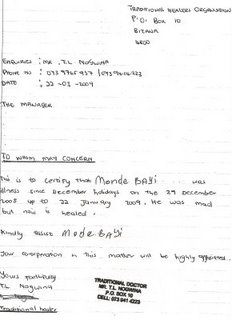Getting a Job in the Medical Field
Understanding the Medical Field
The medical field encompasses a wide range of careers, from clinical roles like doctors and nurses to administrative positions such as medical billing and health information technicians. This sector is not only vast but also vital, offering numerous opportunities for individuals seeking a stable and rewarding career. The journey to securing a job in the medical field requires a blend of education, skills, and perseverance.

Education and Training Requirements
Clinical Roles
- Physicians and Surgeons
To become a physician or surgeon, one must undertake a rigorous educational path. This typically begins with a bachelor’s degree, followed by medical school, and then a residency program. Specializations may require additional fellowships. Medical school curricula cover a wide range of subjects, from anatomy and biochemistry to pathology and pharmacology. - Nursing
Nursing offers various entry points depending on the level of care one wishes to provide. Registered Nurses (RNs) generally need a Bachelor of Science in Nursing (BSN) or an Associate Degree in Nursing (ADN), followed by passing the NCLEX-RN exam. Advanced practice nurses, such as Nurse Practitioners (NPs) or Clinical Nurse Specialists (CNS), require a master’s or doctoral degree. - Allied Health Professionals
Allied health roles, such as physical therapists, occupational therapists, and radiologic technologists, each have their specific educational requirements. These typically include a specialized degree and certification in their respective fields. For instance, a physical therapist must earn a Doctor of Physical Therapy (DPT) and pass a licensure exam.
Non-Clinical Roles
- Medical Billing and Coding
Medical billers and coders play a crucial role in the healthcare system by ensuring that medical records are accurately translated into codes for billing purposes. This role usually requires a certificate or associate degree in medical billing and coding, along with certification from a recognized body like the AAPC or AHIMA. - Health Information Technicians
Health information technicians manage and organize health data. They must complete a postsecondary certificate or an associate degree in health information technology. Certification, such as the Registered Health Information Technician (RHIT) credential, is also highly recommended.
Gaining Experience
Internships and Volunteering
Gaining practical experience is essential in the medical field. Internships, clinical rotations, and volunteering at hospitals or clinics provide invaluable hands-on experience. These opportunities not only bolster your resume but also help in building a professional network.
Residencies and Fellowships
For physicians and surgeons, residency programs are mandatory. These programs provide intensive training in a specific medical specialty under the supervision of experienced doctors. Fellowships offer further specialization and are often pursued after completing a residency.
Building a Strong Resume
Highlighting Education and Certifications
Ensure your resume clearly lists your educational background and any relevant certifications. Include the names of the institutions, dates attended, and any honors received. For clinical roles, list your licensure and board certifications prominently.
Emphasizing Relevant Experience
Detail your practical experience, including internships, residencies, and any volunteer work. Use action verbs and quantify achievements where possible. For example, “Managed a caseload of 50 patients per week” or “Implemented a new patient tracking system that reduced appointment wait times by 20%.”
Skills and Competencies
In addition to technical skills, highlight soft skills such as communication, empathy, and problem-solving abilities. The medical field demands professionals who can work under pressure, collaborate with multidisciplinary teams, and provide compassionate care to patients.
Navigating the Job Market
Networking
Networking is crucial in the medical field. Attend professional conferences, join medical associations, and participate in continuing education workshops. Online platforms like LinkedIn are also valuable for connecting with industry professionals and staying updated on job openings.
Job Search Platforms
Utilize specialized job search platforms such as Health eCareers, MedJobCafe, and PracticeLink. These platforms cater specifically to healthcare professionals and offer tailored job listings.
Preparing for Interviews
Preparing for medical job interviews involves more than just reviewing common questions. Be ready to discuss clinical scenarios, ethical dilemmas, and your approach to patient care. Practice answering questions that test your technical knowledge and interpersonal skills.
Advancing Your Career
Continuing Education
The medical field is ever-evolving, and continuing education is critical. Stay current with the latest advancements by attending workshops, enrolling in advanced courses, and obtaining additional certifications.
Professional Development
Engage in professional development activities such as mentoring, participating in research, and contributing to medical journals. These activities not only enhance your knowledge but also position you as a leader in your field.
Specialization and Leadership Roles
Consider specializing in a niche area of medicine or pursuing leadership roles within your organization. Specialization often requires additional training and certification, but it can lead to higher salaries and increased job satisfaction. Leadership roles, such as department heads or administrators, offer the chance to influence healthcare policies and practices.
Conclusion
Securing a job in the medical field requires a combination of education, experience, and dedication. Whether you aspire to be a physician, nurse, or health information technician, the path involves rigorous training and continuous learning. By building a strong resume, networking effectively, and staying committed to professional development, you can achieve a fulfilling and impactful career in healthcare. The journey may be challenging, but the rewards—both personal and professional—are immeasurable.



